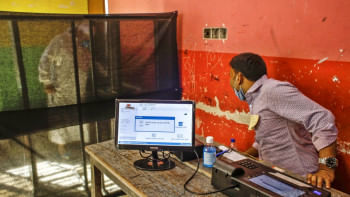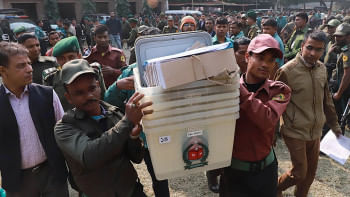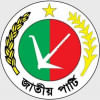Can BNP survive the pre-election meltdown?

This is not the first time that such a concern is being raised, nor is it likely to be the last if the political argument for having opposition remains as strong as it is now. But in some circles, there is an air of exhaustion around the endless rise-again-fall-again cycle of BNP that is getting a tad overbearing. Just months ago, a then-resurgent BNP pulled massive crowds to its anti-government rallies, despite severe obstacles, only to crumble as the election neared. Its retreat to the back foot amid mass arrests and convictions was as remarkable as it was rapid, and it didn't help raise party morale either when questions were thrown around about its post-election existence.
These questions, interestingly, are being fuelled by none other than Awami League, the architect of its decline. Citing violence and arson attacks that occurred in the wake of BNP's October 28 rally, ruling party leaders seem to want a harsher response to BNP. Reactions have ranged from terming it as a "terrorist" group that "has no right to do politics," to calling it an "illegitimate" party, to an outright demand for its ban on charges of terrorism. Many view these calls as an effort to further incapacitate BNP with an eye on the future.
However, during a recent interview, Law Minister Anisul Huq downplayed the statements as being "political," claiming there is no plan yet to ban BNP. When asked about their strategy of dealing with BNP after the election, which Awami League is certain to win, Huq said: "We will see post-election. But Awami League believes in democracy. We do not say that we will wipe out any party. But as history has shown, many parties disappear because of their own actions." Even if Awami League wants to avoid the optics of banning a direct rival for power—like it did with Jamaat after the High Court declared its registration with the Election Commission illegal in August 2013—nothing definitive can be said about when, or whether, BNP will be able to recover from the heavy crackdown it just suffered.
Like a receding hairline behind a headband, BNP's existential crisis is being covered with a façade of press notes, interviews, and occasional meetings by mostly second-tier leaders. The crisis still shines through. This would be considered a master stroke by the government if it wasn't so preposterous and undemocratic. Just imagine: in less than two months since November 7, at least 1,540 BNP-Jamaat activists have been sentenced on various charges.
There are various speculations about what will happen after January 7. One analyst suggested that Awami League will double down in its persecutions, sending "an ominous signal" for BNP's future existence. Already, Awami League is reportedly asking its grassroots to support candidates from other parties in a number of constituencies in a bid to have "a parliament of all stripes." Jatiya Party, despite diminishing enthusiasm and some 20 of its candidates pulling out of the race, may again find itself thrust into the opposition bench, although the presence of independents may complicate the situation. But it only goes to support the shift away from a BNP-centric opposition narrative.
However, in a recent interview, a BNP lawyer-leader has stressed that any plan to ban or destroy BNP will not be successful. He referred to BNP's resilience amid what he called failed attempts over the years to break the party into pieces or create a leadership crisis within it. BNP reportedly plans to continue its anti-government movement after the election. For the party leaders and activists on the receiving end of government repression, however, it will be difficult to stay motivated, especially in the absence of any tangible result. These days, BNP leaders are hard to find on the streets, and harder still at their homes or party offices, most of which are locked anyway. The fear of being arrested/framed/convicted is keeping them on the run, and off tough demonstrations. Rather than organising hartals and blockades, as it did before, BNP is focusing on mass contact to dissuade voters from casting their ballots, planning only a two-day hartal on the eve of the election.
Like a receding hairline behind a headband, BNP's existential crisis is being covered with a façade of press notes, interviews and occasional meetings by mostly second-tier leaders. The crisis still shines through. This would be considered a master stroke by the government if it wasn't so preposterous and undemocratic. Just imagine: in less than two months since November 7, at least 1,540 BNP-Jamaat activists have been sentenced on various charges. The number of those who have been arrested, are in custody, or awaiting trials is many, many more, running well into 20,000, as per BNP sources. A number of party activists have also died in custody. In fact, the record book for the whole election year, according to a rights organisation, is saturated with such examples.
If there was a contest for "opposition cleansing" among the hybrid regimes where Bangladesh is now a formidable entrant, Awami League would surely ace it.
Against this backdrop, we can argue about whether reducing a national election to something akin to a party council, at the estimated cost of over Tk 2,000 crore, is at all worth it. We can speculate about how far it will set us back as a nation, both politically and economically. We can cry hoarse about how elections in general have become an enabler of the corrupt and affluent rather than the general citizens, who should be in the driving seat and be able to choose their own representatives. We can even argue about BNP, having experienced first-hand how ruthless and ingenious the government can be in eliminating competition, being unprepared for all possible scenarios, thus partly causing its own downfall.
But, after all is said and done, the fact remains that BNP—whose willing and unobstructed participation in the election, along with other pro-democracy parties, could right a lot of the wrongs we face today—stands at a critical point in its history. In that it also symbolises the plight of a disenfranchised populace. The future is uncertain. But such is the irony of our time that whether the party will perish amid sustained government assaults, or be reduced to a Jamaat/Jatiya Party-like existence, or succeed to start from the ground up may not entirely depend on itself. It all comes back to Awami League.
Badiuzzaman Bay is assistant editor at The Daily Star. He can be reached at [email protected]
Views expressed in this article are the author's own.
Follow The Daily Star Opinion on Facebook for the latest opinions, commentaries and analyses by experts and professionals. To contribute your article or letter to The Daily Star Opinion, see our guidelines for submission.

 For all latest news, follow The Daily Star's Google News channel.
For all latest news, follow The Daily Star's Google News channel. 












Comments